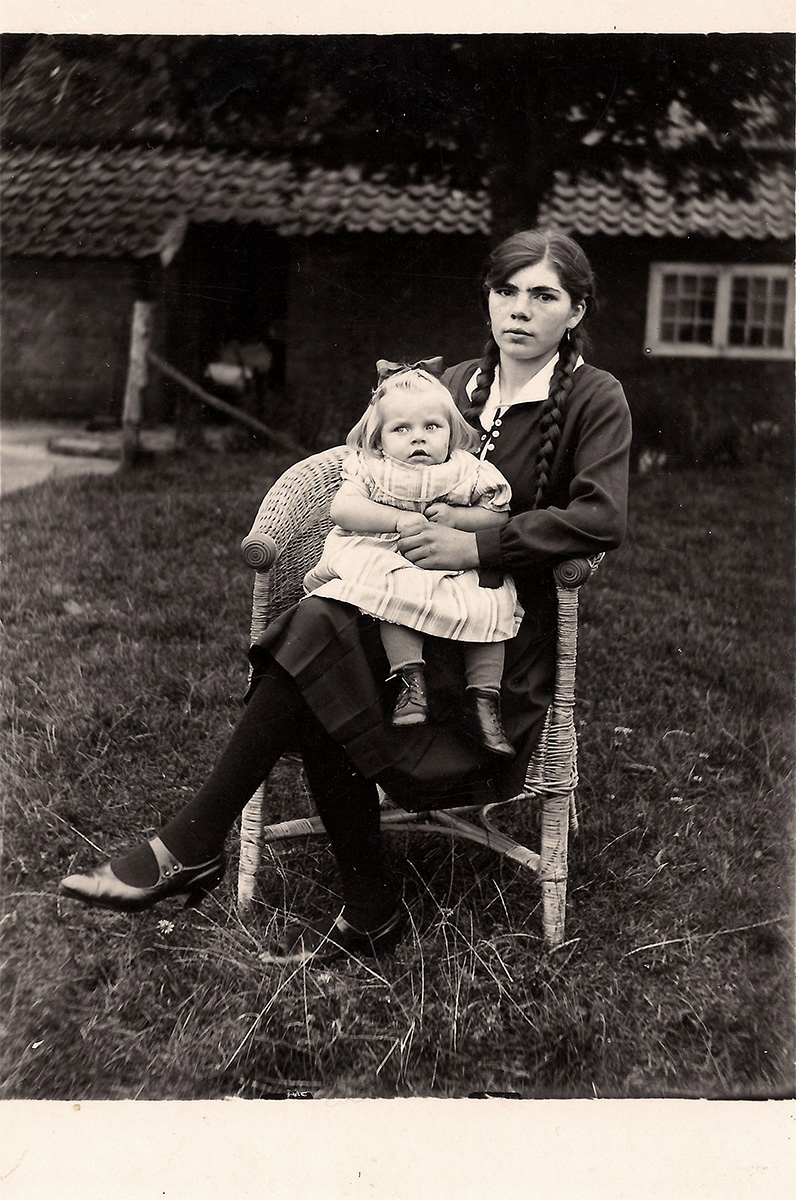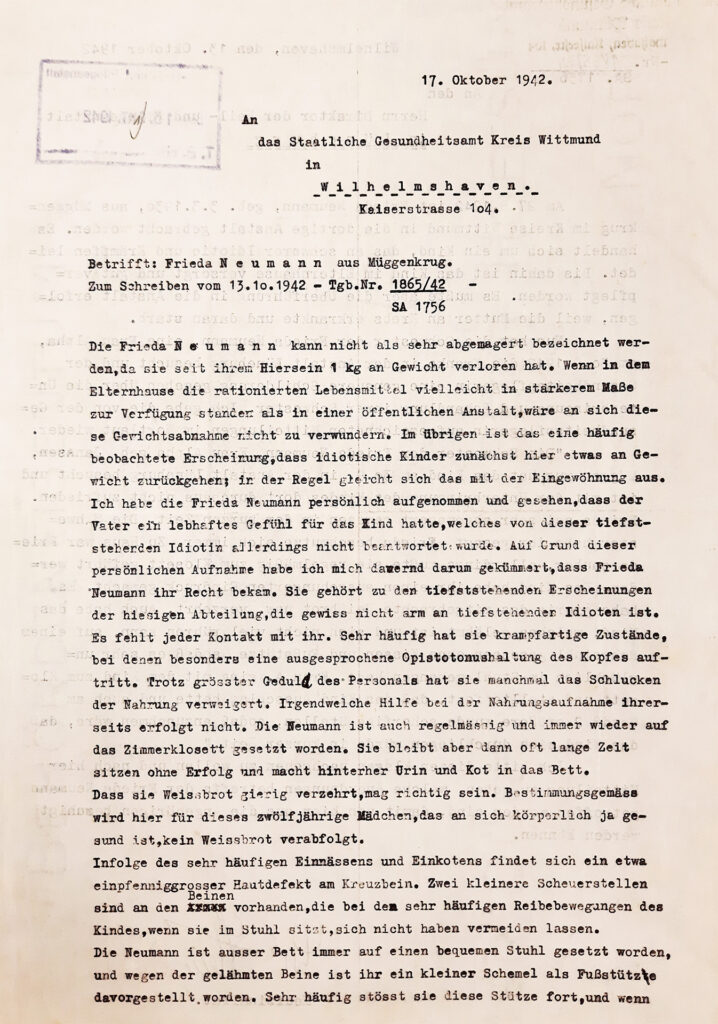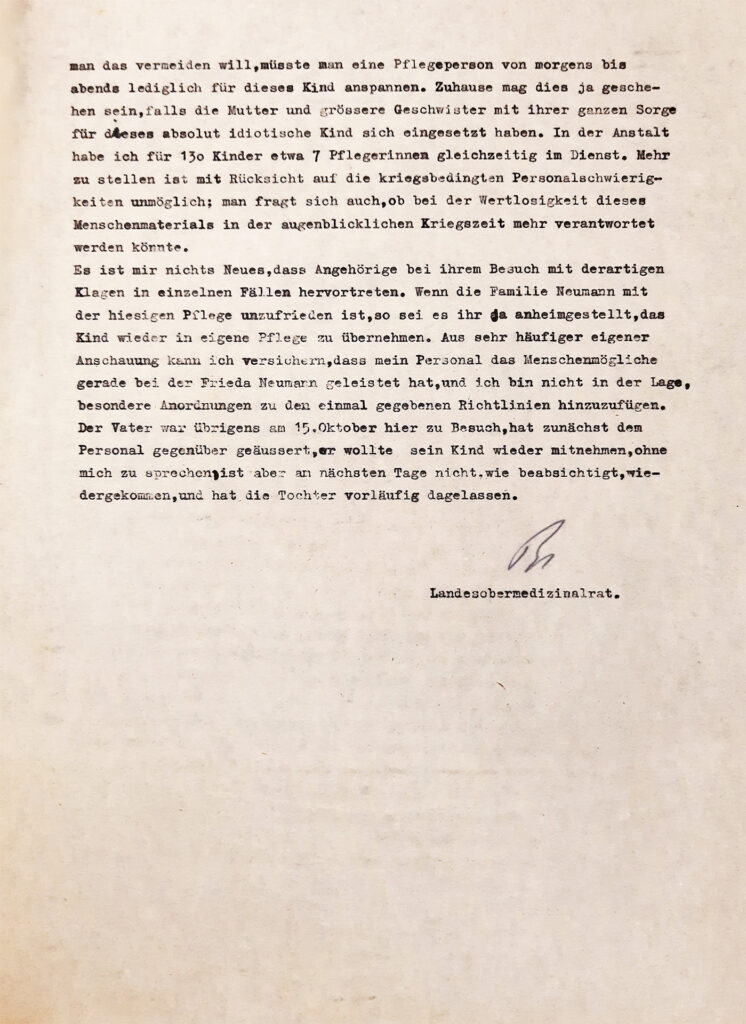Frieda Neumann came from Wittmund on the North Sea coast. She was the youngest of six children. Two of her brothers had been killed in action in 1941. In August 1942, Frieda was examined by a health care worker, who then applied by telephone for her admission to the »children’s ward« in Lüneburg. The medical officer’s report was submitted later. Frieda was supposed to be accompanied only by the nurse when she was admitted, but her father came along. He wanted to know where his daughter was being taken.
The father subsequently wrote numerous letters inquiring about his daughter’s well-being. As he did not receive satisfactory responses, he sent Frieda’s older sister Hilda to Lüneburg at the end of September 1942. She was shocked by Frieda’s condition. Frieda was emaciated, had abrasions, and a rash. Hilda complained about this to the nursing staff. On October 15, 1942, the father himself came to Lüneburg. He too was horrified and announced that he would place his daughter elsewhere.
Willi Baumert responded to the family’s accusation: »One wonders whether, given the worthlessness of this human material in the current war, more responsibility could be taken.«
On November 18, 1942, Frieda’s parents applied for her transfer to Bethel near Bielefeld. But Frieda never left Lüneburg alive. Just one week after the governor of the province of Hanover approved the transfer to Bethel, her father received a telegram: »Daughter Frieda ill with high fever.« Four days later, she was dead. The official cause of death was listed as »pneumonia.«


